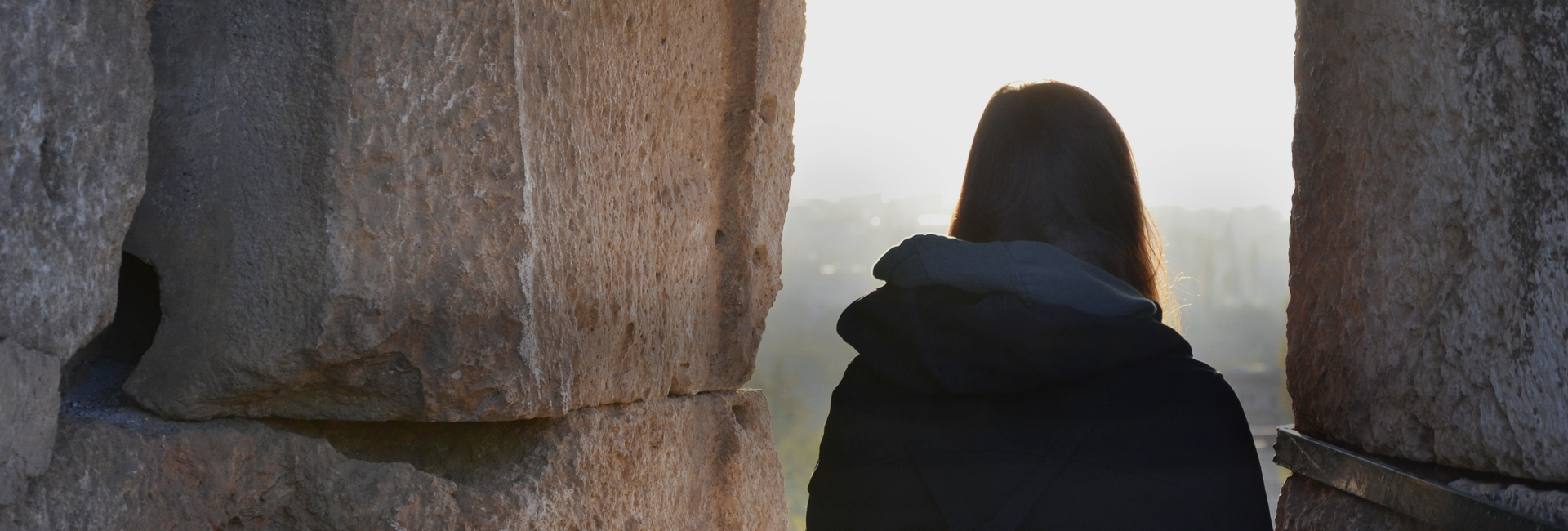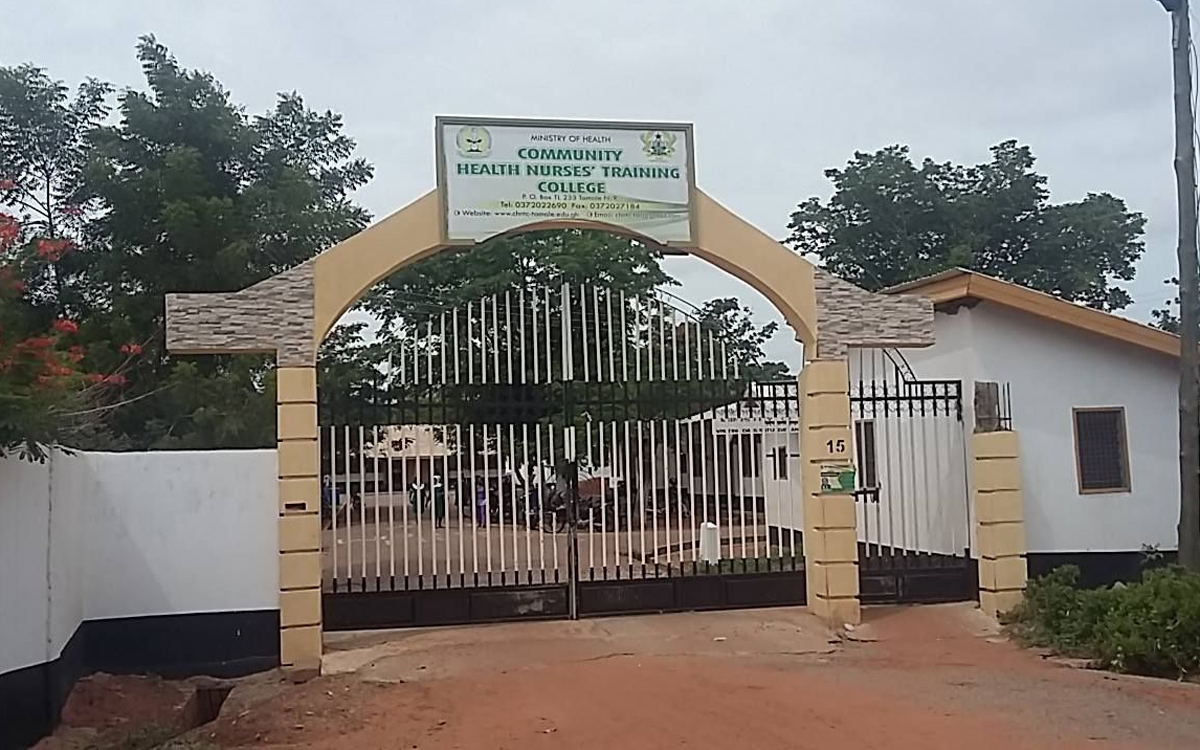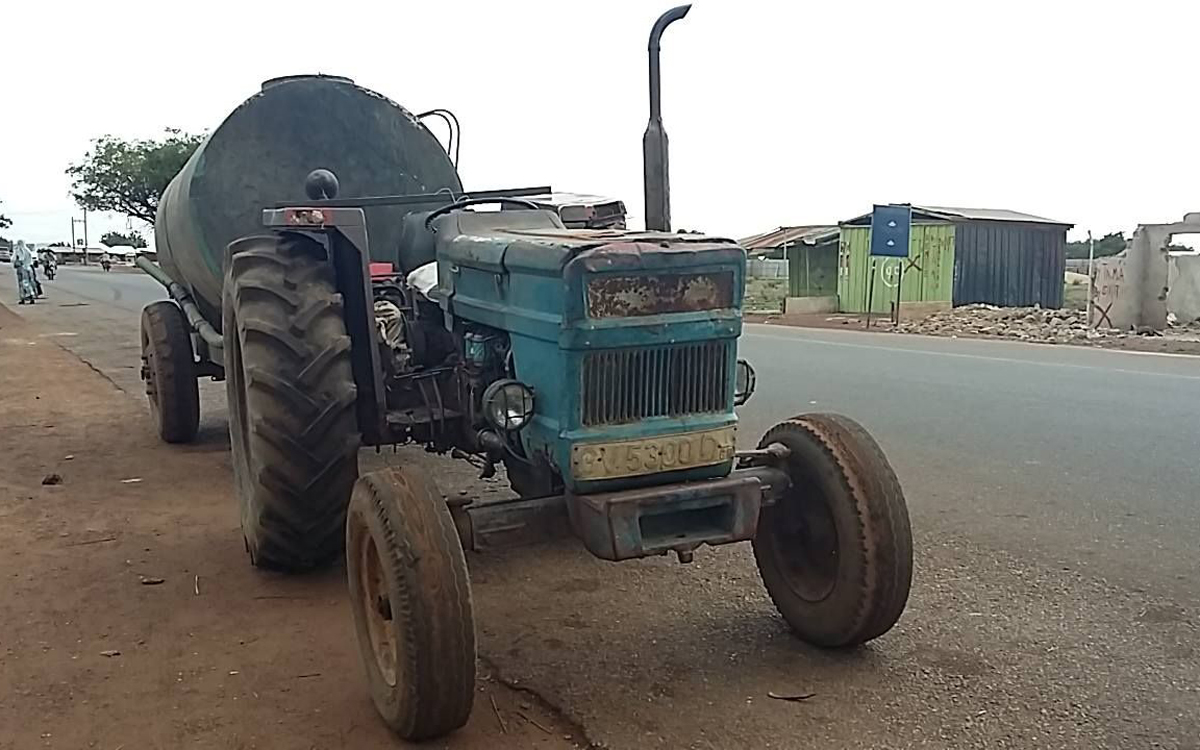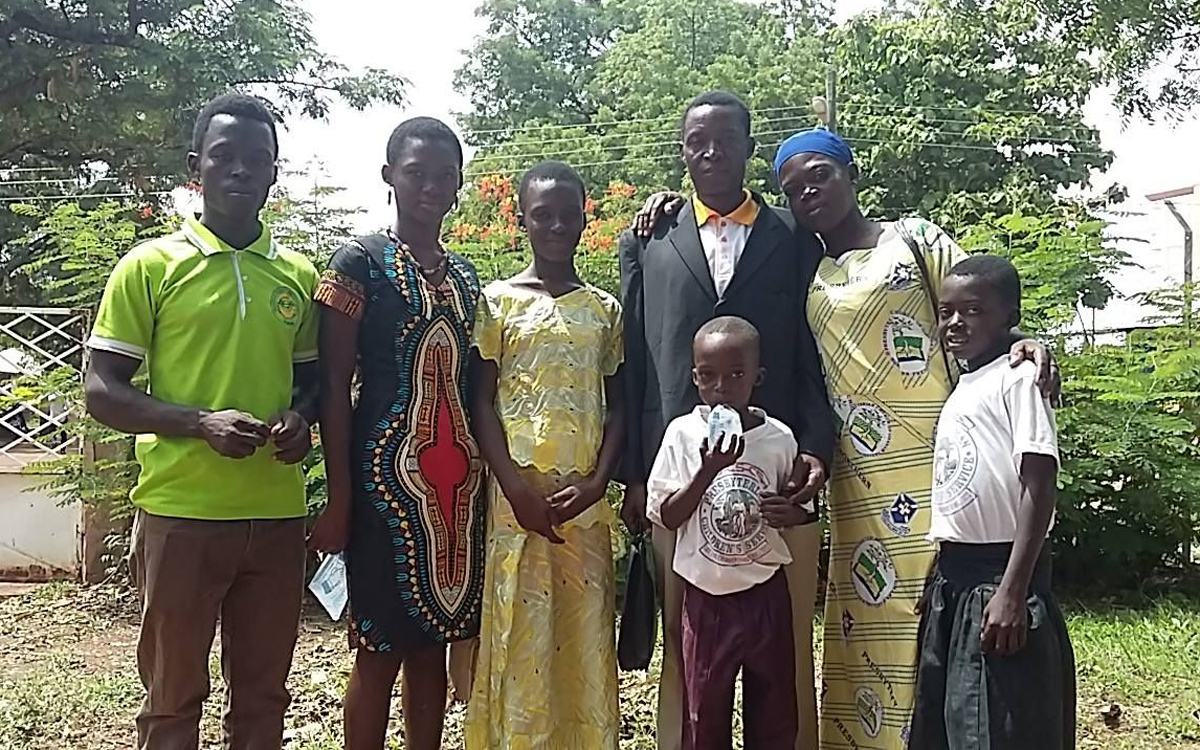
Weltweit erlebt
10 Freiwillige weltweit. Täglich neue Eindrücke und Erlebnisse. Kleine und große Herausforderungen. Erfahrungen für das ganze Leben – all das ist das Ökumenische FreiwilligenProgramm der Evangelischen Mission in Solidarität (EMS)
"Yes, I feel that the climate is changing"
Warum muss ich derjenige sein, der über Land und Leute und Themen wie Migration, Religion oder Klimawandel berichtet? Wie tickt eigentlich die ghanaische Jugend? Gibt es nicht viel mehr Sinn, wenn ich versuche, die Menschen, die ich hier kennengelernt habe, selbst zu Wort kommen zu lassen?
Diesmal möchte ich euch ein vielfältiges Gespräch mit Abigail zeigen. Abigail (19) wohnt mit ihrer Familie in Tamale-Vittin, unweit meiner Einsatzstelle. Ihre Familie gehört zur Volksgruppe der Dagomba. Sie ist Mitglied der Presbyterian Church und hat 2015 die Senior High School abgeschlossen. Dieses Jahr hat sie sich bei einem Nursing Training College in Tamale beworben, um die Ausbildung zur Krankenschwester anzutreten. Für viele Jugendliche im Norden Ghanas bleibt die tertiäre Bildung jedoch bloß ein teurer Traum.
Um mir Arbeit zu ersparen, aber auch um das Interview nicht zu verfälschen, habe ich auf eine Übersetzung verzichtet.
How many siblings do you have?
I have two brothers and two sisters.
How do you spend your free time?
I like to write gospel songs and meeting with friends.
What are your parents working?
My dad works as an accountant at the Ghana Education Service. My mother is a trader. She produces different kinds of traditional drinks out of millet, maize, ginger or hibiscus. In the rainy season we also farm maize on a small patch and we have a few sheep and fowls.
What is your favourite food?
I like plain rice with beans stew.
Why are there school uniforms in Ghana?
In order to identify any child you come across in town.
What does freedom mean to you?
The chance to do whatever I want.
What does religion mean to you?
It is the channel of worship. The way I follow to worship my God.
You belong to the Dagomba tribe. The vast majority is Muslim. Christianity came around the 1960s to Tamale and up today you rarely find Christians here. Could you describe how it affects your life? How is the relationship between Muslims and Christians?
Because both religions are missionary religions there is competition to win new souls into the belief. I also find it difficult to tell Muslims my belief. In the South of Ghana I think it is easier to freely live as a Christian. In Tamale, sometimes it is difficult for churches to hold special events at night. Anyway, I also have Muslim friends.
Dagomba are predominantly of Islamic belief. However, you are Christian. How? Why?
Because I found out that Christianity is not based on culture or clan. Moreover, I believe it is the only religion which leads you to heaven.
Culturally and ethnically the North of Ghana is more diverse than the South. Southerners are mostly Christian. Meanwhile in the North the majority is of Muslim belief. Do you see any tensions between the two regions because of that?
The tension here is that the people in the South accepted Christianity earlier due to the arrival of European missionaries at the coast. Meanwhile the North has always been under the influence of Muslim traders from Arabia.Currently a lot of this historic border of beliefs is changing because people migrate from the North to the South and vice versa.
Why do people migrate inside Ghana?
Mostly they migrate in order to look for jobs and for bare survival. And of course for education because there are only a few universities in the country.
How many of your classmates from Senior High School (der Abschluss entspricht einer Hochschulzugangsberechtigung) have continued their education or have found a job?
Around ten percent. It was difficult because our results delayed. So no one could directly apply for the following semester. Many of my classmates couldn't afford to continue their education. Some have started their own business as shoemakers or seamstresses.
Is it accepted if a man loves another man and marries him? Why?
No, because our main religions here are Islam and Christianity. Both of them are very strong and none of them accepts it.
The Fulani people who originally come from Nigeria and nowadays from Burkina Faso and Niger are one example for people immigrating to Ghana. Can you describe their status in Ghanaian society?
First of all we have to see that there have always been Fulani in Ghana but not so many like now. I don't know exactly the reasons why there is such a huge influx into Ghana right now. Probably their home countries are stronger affected by desertification than Ghana.
Desertification?
Yes, the Sahara or in this particular case the Sahel is expanding to the South. So, the Fulani who had been here traditionally are respected people in their areas. But due to robberies and other crime incidents Fulani got a bad reputation. There have been cases that they destroyed farmland because they moved over it with their large herds of cattle.
Have you got the feeling that rainy seasons become shorter and dry seasons become longer, meaning that the climate is changing?
Yes, indeed. I feel that the climate is changing. Elder persons often recount that once the rainy season was longer than the dry season. Nowadays, the rainy season is only about four months and the rains become infrequent and fall arbitrarily. Last year for example there had been strong rains in April. Many farmers started to cultivate their crops but then it stopped until July. So, they lost their seeds and could only cultivate from July to September. Therefore the yield was not satisfying and many had to take loans to survive the dry season.
Thank you, Abigail!



